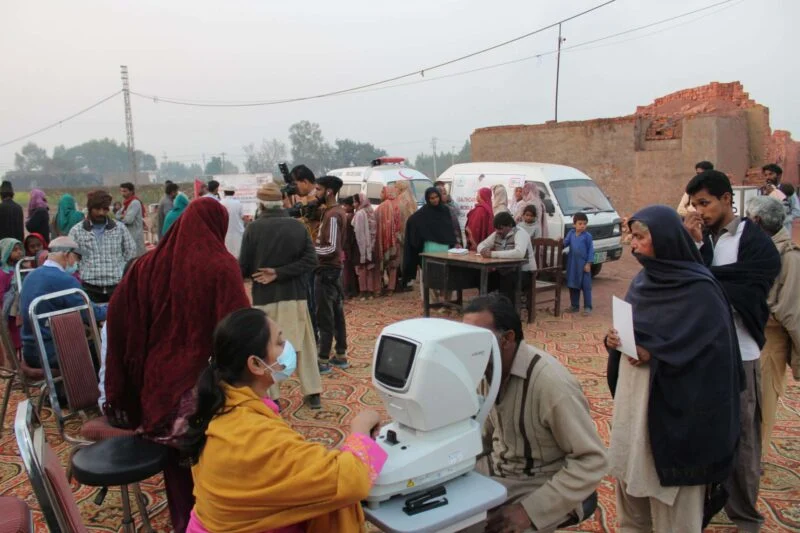
Organizing Free Medical Camps
Free medical camps serve as vital interventions to bridge the gap between healthcare services and underserved populations. These camps provide essential medical consultations, diagnostics, treatment, and health education at no cost, thereby reducing healthcare disparities.






Key Steps in Organizing Free Medical Camps:
- Needs Assessment: Identify communities with limited access to healthcare services. This involves analyzing health indicators, conducting surveys, and collaborating with local leaders to determine specific health needs.
- Planning and Coordination: Develop a detailed plan outlining the camp’s objectives, target population, services to be offered, and logistical requirements. Collaborate with healthcare professionals, local authorities, and community organizations to ensure comprehensive service delivery.
- Resource Mobilization: Secure necessary resources, including medical supplies, equipment, medications, and personnel. Engage donors, pharmaceutical companies, and volunteer healthcare workers to support the initiative.
- Implementation: Set up the camp at a convenient location, ensuring accessibility for the target population. Provide services such as general health check-ups, specialized consultations, diagnostic tests, and health education sessions.
- Monitoring and Evaluation: Assess the camp’s impact by collecting data on the number of individuals served, health outcomes achieved, and community feedback. Use this information to refine future initiatives.
Kind Cares Foundation exemplify successful implementation of free medical camps, offering services such as healthcare, medicines, diagnostic tests, and health awareness to those in urgent need.
Providing Free Medical Treatment and Medicines
Delivering free medical treatment and medicines is fundamental to ensuring that all individuals, regardless of their financial status, receive necessary healthcare services. This approach is particularly crucial in regions where poverty and lack of insurance coverage impede access to essential health services.
Strategies for Providing Free Medical Treatment and Medicines:
- Partnerships with Healthcare Providers: Collaborate with hospitals, clinics, and healthcare professionals willing to offer services pro bono or at reduced rates.
- Medicinal Donations: Establish relationships with pharmaceutical companies and suppliers to receive donations of essential medicines. Ensure that donated medicines are within their shelf life and comply with regulatory standards.
- Mobile Health Units: Deploy mobile clinics equipped with necessary medical supplies to reach remote or underserved areas, providing on-site consultations and dispensing medications.
- Health Camps and Outreach Programs: Organize periodic health camps and outreach programs that offer free consultations, treatments, and distribution of medicines to target populations.
Kind Cares Foundation sponsors free medical camps with comprehensive services, including medicines, exemplify effective models of delivering free medical care.
Facilitating Medical Equipment Donations
Access to appropriate medical equipment is crucial for accurate diagnosis and effective treatment. However, many healthcare facilities, especially in low-resource settings, face shortages of essential equipment. Facilitating donations of medical equipment can significantly enhance healthcare delivery.
